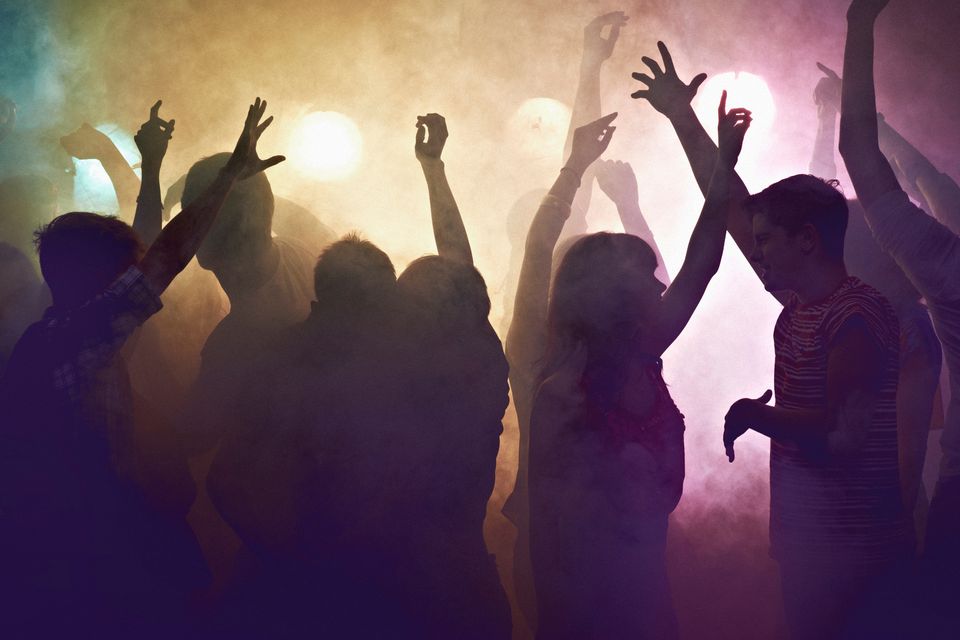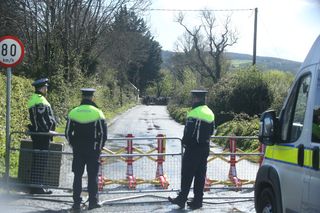Death of disco dancers as Dublin's Club 92 closes - are nightclubs heading for the history books?
It's the end of an era in Dublin as Club 92 shuts its doors. Are nightclubs heading for the history books? Tanya Sweeney reports
Stock image
Not for nothing was Club 92 known as The Club Of Love - and really, when you had a mix of glossy tans, upturned polo collars, blonde GHD'd beauties, UCD freshers, unironic pop playlists and the odd slosh of tequila, what else could you expect?
For well over 30 years, Club 92 was an institution, so news of its imminent demise has left SoCoDu in mourning. Social media erupted in indignation, as well as a huge nostalgia deep-dive, when it was announced that the nightclub's big closing party will take place on Monday, December 31.
Even iconic (and fictional) Southsider Ross O'Carroll-Kelly has been shaken by the news, tweeting: "Club 92 is following Kielys and Renords into oblivion, and I don't know what to tell my children anymore."
Along with Wesley and Bondi, Club 92 was part of the holy trinity of SoCoDu 'rite of passage' clubs. It wouldn't be unusual at the peak of the Celtic Tiger to see Brian O'Driscoll, Denis Hickie or Damien Duff taking to the dance floor. Even Rosanna Davison was a regular: "I spent pretty much every Sunday night there back when I was in first year UCD in 2002-3," she says. "It was the best fun ever! I also met my husband (Wes Quirke) there for the first time."
Rosanna isn't alone in that regard. The iconic Leopardstown venue is responsible for a lot of fun times, flings and, according to its director Lisa Smith, a few engagements and marriages.
"I don't know where 'The Club Of Love' came from, but we took it and ran with it," smiles Lisa. "We ended up using that line ourselves."
Former Miss Universe Ireland Lynn Kelly celebrates Club 92’s 20th anniversary in 2009. Photo: Stuart McNamara / Mac Innes Photography
Lisa, along with her brother Richard, were regular visitors to the club as teens - their entrepreneur father Des took over the nightclub Blinkers back in 1987 and turned it into Club 92.
He installed Tommy Mathews as resident DJ, who is still spinning tunes there to this day.
The vibe was designed to be unpretentious, with a non-snooty dance-floor policy - in the end, it was the young cohort of glossy, moneyed regulars that helped amp up the glamour quotient. Later, chart pop would be mixed up with grimy, sexy hip-hop; a formula that struck a chord with younger clubgoers.
"Part of the success had to do with good staff, who came along on their nights off to socialise," explains Lisa. "Our ethos was that we wanted to have a party-friendly venue that people could go to, get chatted up in and dance.
Lisa Smith says the nightclub scene has changed a lot
"When I was younger, the age group was 40 and 50-year-olds, who would happily mix with 20 and 21-year-olds - the older clientele would go to the left in the door," adds Lisa. "Tommy would play anything he felt the crowds wanted, whether it was Michael Jackson or Wham!. In fact, we were one of the very few clubs in Dublin that still did a slow set, up until about eight years ago.
"In the last 10 years, things became a lot younger, with the clientele being mainly in their mid-20s."
Lisa notes that Club 92 has commercially had "a great last two years", but the club is closing due to the development of Leopardstown Racecourse: "We would have loved to continue the club, but for now, it's a question of going out as well as we can," she says.
Club 92 is just one casualty in an overall trend that has seen the might of the nightclub dwindle. Several clubs, among them the Twisted Pepper, Hangar, Redz, Tripod and Crawdaddy have all closed their doors to punters in recent years. It's a phenomenon that's not exclusive to Ireland: 2016 research from Mintel found that UK attendance in nightclubs fell by 23 per cent in the previous five years.
Part of Club 92's big draw was its neighbourhood feel. Meeting fellow locals there was very much a given. It was a choice night out for those who didn't want to make the trek into town, and fancied only a brief wobble/walk home by night's end.
These days, things are different. Getting in and out of the city centre has never been easier. Thanks to advances in technology, club goers can listen to their favourite tunes any day of the week. And these days most young people do their networking and dating online: in the post #MeToo era, flirting and hooking up in a nightclub is… well, complicated.
Rob Browne is general manager of Tamango's club in Portmarnock. Like Club 92, it has long entered the lexicon of Dublin nightlife, and was often referred to as a Northside equivalent to Club 92.
"Years ago, some people didn't want to go into town in case they were refused [entry]," he says. "When people got fed up going to Tamangos, they'd go to Club 92, or you'd hear someone say, 'we can't go to Club 92, I kissed someone there last week and can't go back', so they'd come to us".
"The club industry has changed a lot - I think part of it is people drinking at home, then not coming into club nights until much later," observes Lisa. "Once upon a time, we'd open the doors at 11 and there would be a huge queue of people waiting to get in. Now, you're talking about people not hitting the clubs until at least 1am. Also, the city centre is more of a focal point these days, and social media has changed so much of our daily life," she adds. "You don't need to go to venues to meet people and fall in love anymore. It's all done online."
Adds Rob: "We've been trying new things every week, like bringing back over-30s nights. We have couples in their 40s and 50s coming who met here years ago, and those club nights have gone down a treat. They keep the venue going more than anything.
"I was really surprised to hear about Club 92 - it's an absolute institution. But the club scene has changed so much - you're up against festivals and concerts and all the rest."
In the last week, Lisa and Richard have been inundated with messages from club-goers keen on one last Club 92 hurrah.
"It's likely that our last night will have to be a first-come-first-served ticket situation," she says. "If all the people come along who have said they will, it's likely a lot of people will be bumping into those they haven't seen in 15 years."
Join the Irish Independent WhatsApp channel
Stay up to date with all the latest news















